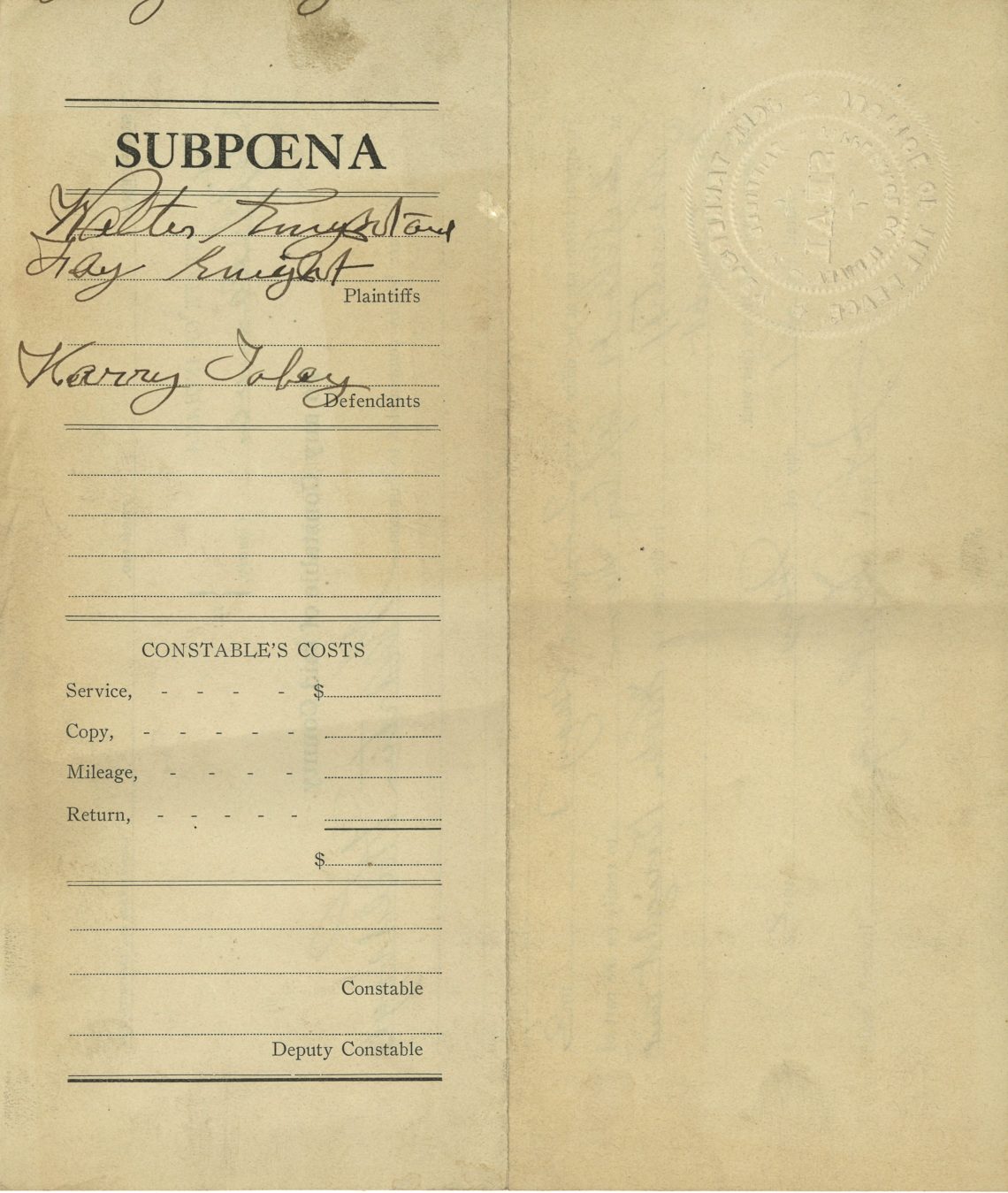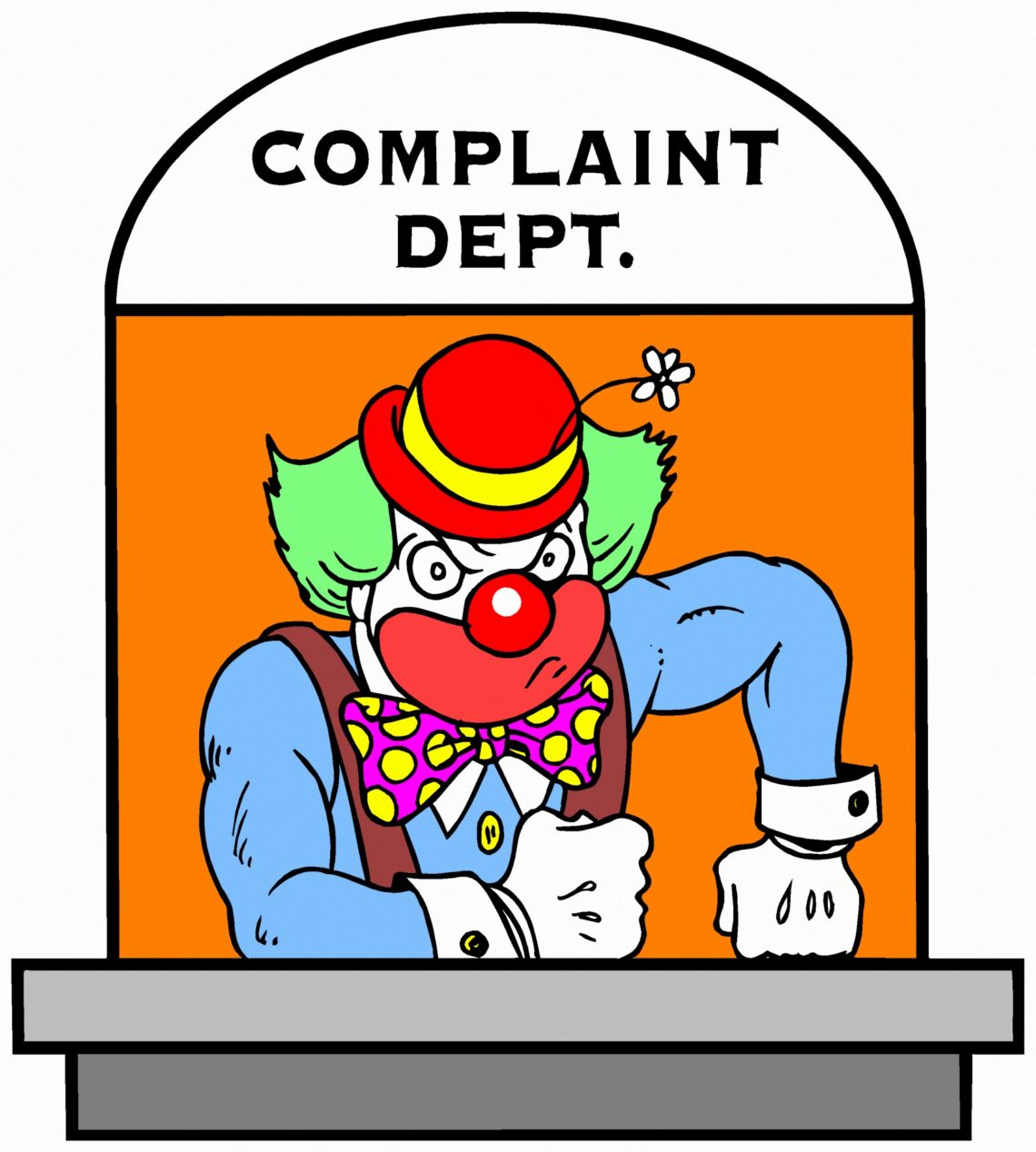In 2019, banks BB&T Bank and SunTrust Bank announced a merger, with the new bank to be named Truist Financial Corporation (“Truist”). In response, Truliant Federal Credit Union (“Truliant”) filed a lawsuit alleging the name Truist infringes on Truliant’s trademark in its name. For a discussion of trademark law and trademark infringement, please see Lindley Law’s previous blog post related to the trademark dispute regarding Duke’s Mayonnaise. Recently in the dispute between Trulian and Truist, Truliant moved for a preliminary injunction, seeking to prevent Truist from using its name pending the outcome of the lawsuit. What is a preliminary injunction, and how does a court determine whether to issue it?…
-
-
DO I NEED TO RESPOND TO THIS SUBPOENA?
A subpoena is a very useful tool for gathering information in civil litigation. They are also used in other contexts, such as by the United States Congress (for example, the congressional subpoena issued to Rudy Giuliani). A civil subpoena is a document provided to an individual or entity compelling that individual or entity to do something – either to testify or to provide documents or other forms of evidence. In North Carolina, the form and function of a subpoena is explained in Rule 45 of the North Carolina Rules of Civil Procedure. Form and Service: What Should My Subpoena Look Like and How Do I Need to Serve It…
-
FRAUD CLAIMS AND THE RULE 9 HEIGHTENED PLEADING STANDARD
What is Fraud? Fraud is broadly defined as an intentional misrepresentation or concealment of material fact made with intention and calculation to deceive, causing the other party to be deceived and, as a result, harmed. Elements In North Carolina, a civil claim of fraud has five essential elements. A false representation or concealment of material fact; Reasonably calculated to deceive; Made with the intent to deceive; Which does in fact deceive; and Resulting in damages to the party deceived. Rule 9 North Carolina is generally a notice pleading jurisdiction – if a Defendant is “on notice” of the facts in a complaint, and the…
-
The Limitations of Subpoenas: When are They Too Much?
Have you or your company ever been subpoenaed by someone and you wonder, “wait, why am I being dragged into their mess?” It seems unfair. Why should you have to take time out of your busy day to help someone else either pursue or defend their own lawsuit? Let’s face it, most people don’t want to be involved in litigation of any kind, let alone someone else’s litigation. There’s nothing to be gained and only time and money to be lost. However, a North Carolina Business Court ruling last year made clear that non-parties to the case should not be unduly burdened with subpoena requests or required to turn over…
-
Think You Can Represent Yourself in Business Court? Think Again.
While it is legally permissible to represent yourself in Business Court, it probably is not a good idea as one plaintiff learned the hard way. In a recent decision from the North Carolina Business Court, a plaintiff, James Gillespie, attempted to be a pro se litigant and wound up with his case dismissed and responsible for paying much of the defendants’ legal fees. Gillespie originally retained counsel for the purpose of suing the defendants. However, his attorneys, John and James Scarbrough, filed a Consent Motion to Withdraw as counsel. The court granted this motion requiring Gillespie to retain a new attorney within four weeks. He did not make the…
-
North Carolina Business Court Awards Rule 11 Sanctions for Second Time this Fall
The North Carolina Business Court recently entered Rule 11 sanctions against attorneys who relied on inaccurate information from their clients in preparing and filing lawsuits. The decision comes just two months after the NCBC awarded Rule 11 sanctions in a case with similar facts (which we summarized Here). In the most recent decision, the client, John Mauney, represented to his attorneys that he was a manager and member of NC Bioremediation, LLC, and therefore had authority to file a lawsuit on the company’s behalf.[1] In fact, Mauney was not, nor had he ever been, a member or manager…
-
Challenging the Validity of a Will vs. the Construction of a Will: North Carolina Court of Appeals Clarifies
Earlier in September the North Carolina Court of Appeals highlighted the procedural difference between challenging the validity of a will through a caveat proceeding and resolving questions as to the construction of a will through an action for declaratory judgment.[1] Plaintiff, Deborah Hildebran (“Hildebran”) was listed as the executrix of her father’s will (the “Will”). Upon her father’s death, the Will was probated in common form before the clerk and Hildebran was appointed executrix. The Will contained several handwritten markings, notably a line that struck through the name of the testator’s granddaughter Chanté Brittian…
-
Rule 11 Sanctions Imposed for Improper Breach of Fiduciary Duties Claims Against Rank-and-File Employees
In September 2011, Southeast Air Charter, Inc. (“Southeast Air”) brought suit against three (3) employees (“Defendants”) alleging, among other things, breach of fiduciary duty and constructive fraud. The North Carolina Business Court (“NCBC”) determined all defendants were rank-and-file employees of Southeast Air and therefore could not be subject to the breach of fiduciary duty and constructive fraud claims. As such, Plaintiff and Plaintiff’s attorneys were subject to Rule 11 sanctions for bringing these claims without any factual basis. In determining the appropriate amount of sanctions and the allocation of attorneys’ fees incurred by Defendants, Judge James Gale, Chief Special Superior Court Judge of the NCBC,…







